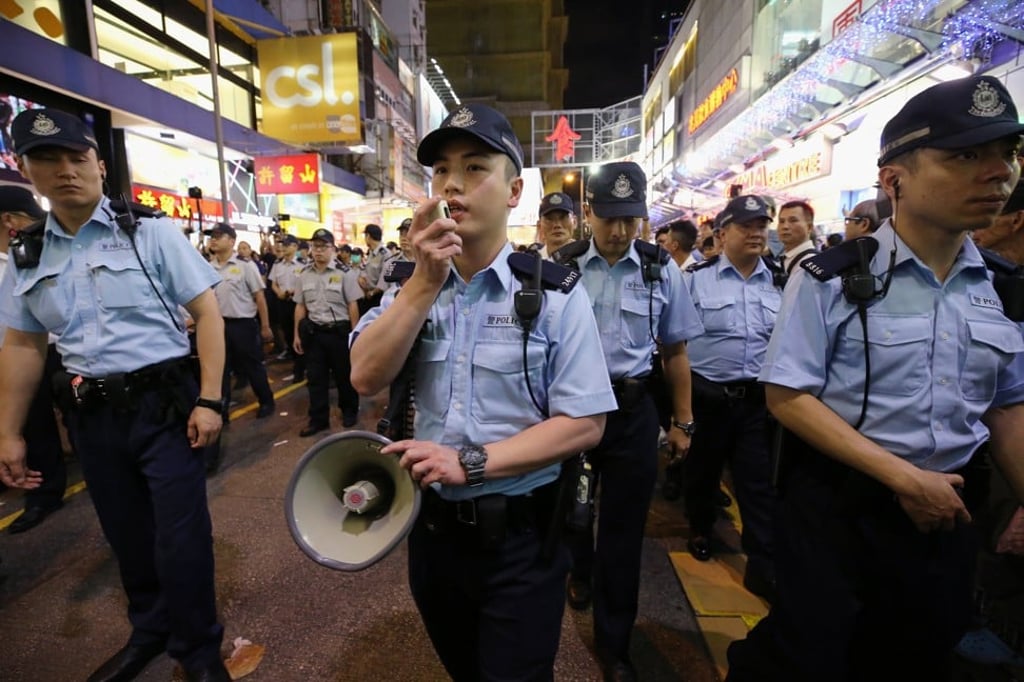Language Matters | How Hong Kong slang terms for ‘police’ have evolved over time
- Much like the ‘popo’ of southern California, the uniform of the Hong Kong police force has informed what they are called
- The word ‘police’ entered the English language via Latin, meaning ‘civil administration’

Back in the day,Hong Kong policemen were referred to in Cantonese as luhky ī (“green clothing”), for the green uniforms they had worn since the 19th century. Khaki drill became the summer uniform around 1920 while the current get-up of light-blue shirt and black trousers, worn year-round, was adopted in December 2004.
In addition to the green uniforms, headgear worn by policemen – the turbans of Sikhs and the conical bamboo hats of the Chinese – were also part of the personification.
Terms being used for the local police force these days have assumed a different hue. During the 2014 “umbrella movement”, pro-democracy protesters condemned officers as hākgíng (“black cops”), a tag that is being widely used in the current protests. “Black cops” alludes to another epithet involving the same colour term: hākséhwúih, which is Cantonese for “black society”, namely, the triads, implying police collusion with organised crime.

But one of the most popular slang terms for the local police today is “popo”. The word has its origins in 1980s southern California, where T-shirts bearing “PO” (“police officer”) worn by cops on bicycles would, with officers riding in pairs, spell out “POPO”. Hong Kong-raised Filipino rapper JB’s F**KTHEPOPO became a hit in June, with the phrase becoming a fixture of protest graffiti.
The word “police” – which today refers to a specific department devoted to maintaining public safety and law and order – entered English in the 1530s via the Middle French police, which came from the Latin politia (“civil administration”). This came from the Greek words politeia (“the conditions and rights of a citizen or community”), politēs (“citizen”) and polis – notably, these encompass not only “city, state” but also “community, citizens”. Also noteworthy is the fact that the Greek polis is the origin of another English word: “policy” (“way of management, good government”).
